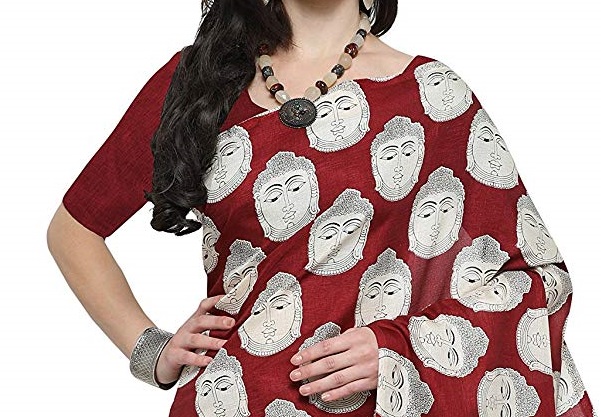Kalamkari Saree that angered a Buddhist monk in Trincomalee
“Kalamkari” is a handmade saree. It is coloured by natural pigments. Currently this is a very popular saree fashion in South India.
This sari is traditionally manufactured in Telengana , Andra Pradesh. It is a traditional handicraft there.
There are varieties in Kalamkari. One type is fully drawn by hand using a pen. Kalam is the pen used and Kari means artist.
These designs relate to stories of Hindu gods and characters in epics like Ramayana. According to certain beliefs in Hinduism, Buddha is the ninth of ten incarnations of God Vishnu. Placement of Buddha in Hindu culture is different to the perception of the Buddhists. Buddha was a world philosopher and not a property of one sect like Sri Lankan Buddhist extremists . Throughout the history neither Buddhism nor Hinduism had not confronted the multiple definitions on Buddha and Buddhism. They are inherently liberal views different to the Buddhist extremism of Sri Lanka in recent times.
Recently popularized Buddha faces on Sarees come from this background. But these Sarees are printed for commercial purposes. They are not true Kalamkari productions but a commercial imitation of the art.
A violent Buddhist monk unleashed emotional violence against a woman in Trincomalee, who was wearing a Kalamkari Saree. Police arrested her and forced her to change her attire to another saree. The said monk declared in public that he would fling her on the ground if she was not a woman.
Who disgraced Buddhism? Was it the woman who wore a Kalamkari saree, which possessed a long historical background or the violent Bhikku?
Original article in Sinhala here>>> ත්රිකුණාමලයේ කාන්තාව ඇඳ සිටියේ කලම්කාරි සාරියක්
(Translated by Rajendra Wijesinghe)


